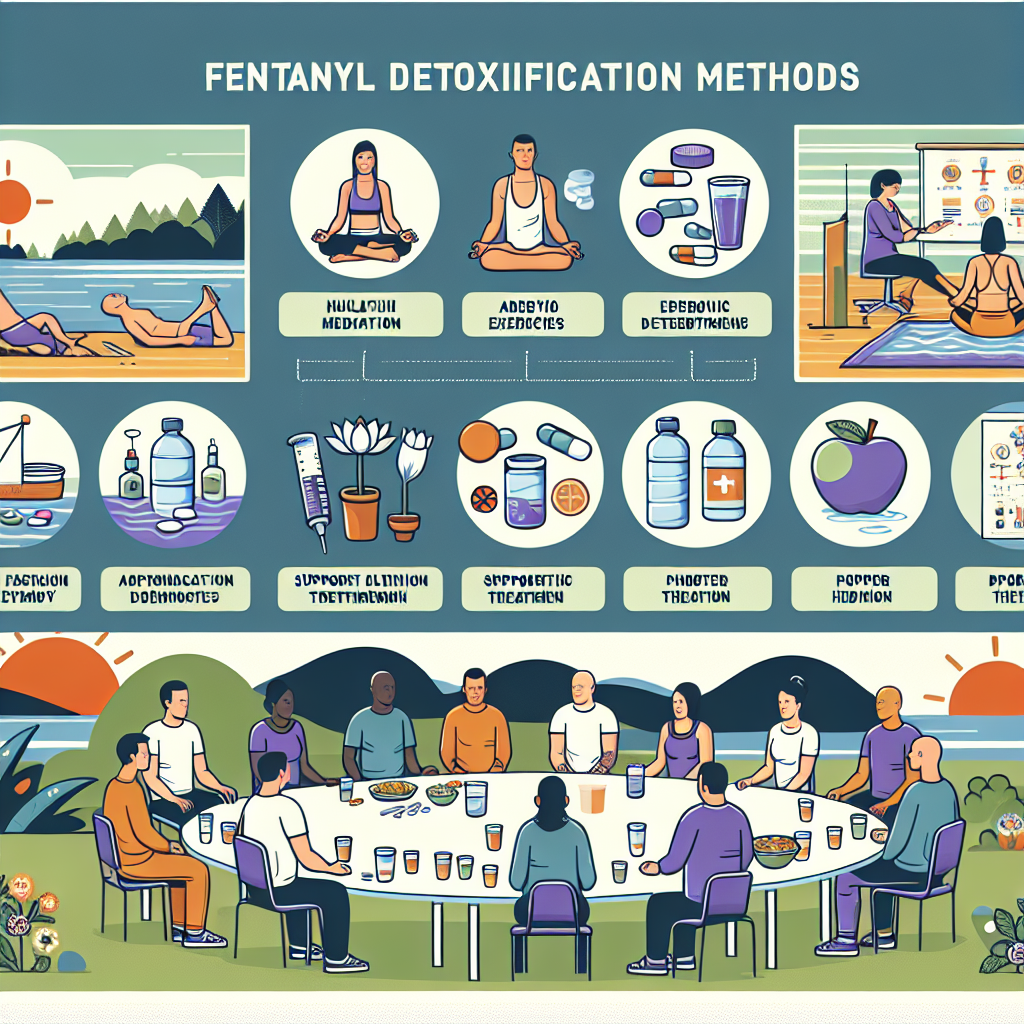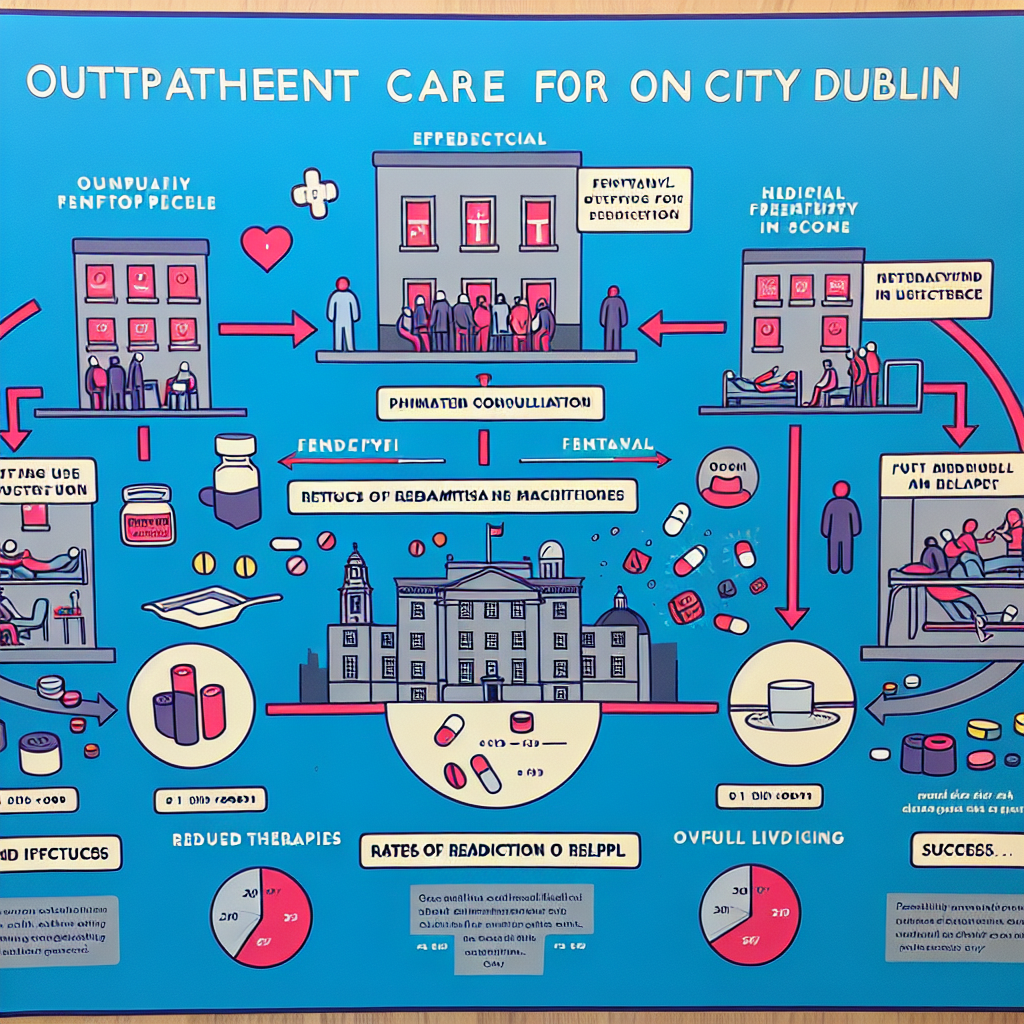-
Table of Contents

“Reclaim Your Life: Proven Detox Solutions for Fentanyl Addiction”
Introduction
Effective detoxification methods for fentanyl addiction are crucial in addressing the severe physical and psychological dependence associated with this potent synthetic opioid. Fentanyl, which is significantly more powerful than morphine, poses substantial risks of overdose and long-term health complications. Detoxification, the initial step in the comprehensive treatment of fentanyl addiction, involves the systematic removal of the drug from the body while managing withdrawal symptoms. Effective methods include medically supervised detox, which ensures patient safety through the use of medications like methadone or buprenorphine to alleviate withdrawal symptoms and reduce cravings. Additionally, supportive therapies such as counseling, nutritional support, and holistic approaches like acupuncture and yoga can enhance the detoxification process. Combining these methods within a structured treatment program increases the likelihood of successful recovery and long-term sobriety.
Comprehensive Nutritional Support for Fentanyl Detoxification
Detoxifying from fentanyl addiction is a challenging journey, but comprehensive nutritional support can play a pivotal role in facilitating this process. As the body undergoes detoxification, it is essential to provide it with the necessary nutrients to repair and rejuvenate itself. This holistic approach not only aids in physical recovery but also supports mental and emotional well-being, which are crucial for long-term sobriety.
To begin with, hydration is fundamental. Fentanyl and other opioids can severely dehydrate the body, leading to a host of complications. Drinking ample water helps to flush out toxins and maintain optimal bodily functions. Additionally, incorporating electrolyte-rich fluids such as coconut water or sports drinks can help restore the balance of essential minerals lost during detoxification.
Transitioning to a nutrient-dense diet is equally important. Fresh fruits and vegetables are rich in vitamins, minerals, and antioxidants that support the body’s detoxification pathways. For instance, leafy greens like spinach and kale are high in magnesium, which can alleviate muscle cramps and improve sleep quality. Berries, on the other hand, are packed with antioxidants that combat oxidative stress, a common issue during withdrawal.
Proteins are another critical component of a detox diet. They provide the building blocks for neurotransmitters, which are often depleted in individuals with fentanyl addiction. Lean meats, fish, eggs, and plant-based proteins like beans and lentils can help restore these essential chemicals, thereby improving mood and cognitive function. Omega-3 fatty acids, found in fatty fish like salmon and in flaxseeds, are particularly beneficial for brain health and can reduce inflammation.
Moreover, complex carbohydrates should not be overlooked. Whole grains such as quinoa, brown rice, and oats provide a steady source of energy and help stabilize blood sugar levels. This is crucial because fluctuating blood sugar can exacerbate mood swings and cravings, making the detox process even more challenging. Fiber-rich foods also promote gut health, which is often compromised in individuals with substance use disorders.
In addition to dietary changes, certain supplements can offer targeted support during fentanyl detoxification. For example, B vitamins are essential for energy production and nervous system function. Vitamin C is another powerful antioxidant that supports immune health and aids in the repair of tissues damaged by drug use. Probiotics can help restore the balance of gut bacteria, which is often disrupted by opioid use and poor dietary habits.
While nutritional support is vital, it is also important to address the emotional and psychological aspects of detoxification. Mindful eating practices, such as paying attention to hunger and fullness cues, can help individuals reconnect with their bodies and develop a healthier relationship with food. Furthermore, engaging in regular physical activity, whether it be yoga, walking, or more vigorous exercise, can boost endorphin levels and improve overall well-being.
In conclusion, comprehensive nutritional support is a cornerstone of effective detoxification from fentanyl addiction. By prioritizing hydration, consuming a balanced diet rich in essential nutrients, and incorporating targeted supplements, individuals can significantly enhance their recovery process. This holistic approach not only addresses the physical aspects of detoxification but also supports mental and emotional health, paving the way for a more sustainable and fulfilling journey to sobriety. With the right tools and support, overcoming fentanyl addiction is not only possible but also an opportunity for profound personal transformation.
The Role of Medical Supervision in Safe Fentanyl Detox Programs
Detoxification from fentanyl, a potent synthetic opioid, is a challenging yet crucial step in overcoming addiction. The process is fraught with physical and psychological hurdles that can be overwhelming without proper support. This is where the role of medical supervision becomes indispensable, ensuring that individuals undergo detox in a safe and controlled environment. Medical supervision not only mitigates the risks associated with withdrawal but also provides a structured pathway towards recovery.
One of the primary reasons medical supervision is essential in fentanyl detox programs is the severity of withdrawal symptoms. Fentanyl is significantly more potent than other opioids, leading to intense withdrawal symptoms that can include severe pain, nausea, vomiting, anxiety, and even life-threatening conditions such as respiratory distress. Under medical supervision, healthcare professionals can administer medications to alleviate these symptoms, making the detox process more bearable. For instance, medications like methadone or buprenorphine can be used to manage opioid cravings and withdrawal symptoms, reducing the risk of relapse.
Moreover, medical supervision ensures that any complications arising during detox are promptly addressed. Withdrawal from fentanyl can lead to unpredictable medical emergencies, such as dehydration from excessive vomiting or seizures. In a medically supervised setting, healthcare providers are equipped to handle these emergencies, providing immediate care that could be life-saving. This level of vigilance and preparedness is something that cannot be replicated in an unsupervised environment, underscoring the importance of professional oversight.
In addition to managing physical symptoms, medical supervision plays a crucial role in addressing the psychological aspects of fentanyl detox. Withdrawal can trigger intense emotional and psychological distress, including anxiety, depression, and suicidal thoughts. Mental health professionals within a supervised detox program can offer counseling and support, helping individuals navigate these turbulent emotions. This holistic approach ensures that both the body and mind are cared for, laying a stronger foundation for long-term recovery.
Furthermore, medical supervision provides a structured environment that fosters accountability and commitment. In a supervised setting, individuals are less likely to succumb to the temptation of using fentanyl again, as they are under constant observation. This structure helps to break the cycle of addiction, encouraging individuals to stay the course even when the process becomes challenging. The presence of a supportive medical team also instills a sense of hope and motivation, reminding individuals that they are not alone in their journey towards recovery.
Another significant advantage of medical supervision in fentanyl detox programs is the opportunity for personalized care. Each individual’s experience with addiction and withdrawal is unique, necessitating a tailored approach to treatment. Medical professionals can assess the specific needs of each person, adjusting medications and therapeutic interventions accordingly. This personalized care enhances the effectiveness of the detox program, increasing the likelihood of a successful outcome.
In conclusion, the role of medical supervision in safe fentanyl detox programs cannot be overstated. It provides a comprehensive support system that addresses both the physical and psychological challenges of withdrawal, ensuring that individuals undergo detox in a safe and controlled environment. By mitigating risks, managing complications, and offering personalized care, medical supervision paves the way for a more effective and sustainable recovery. For those battling fentanyl addiction, seeking a medically supervised detox program is a courageous and vital step towards reclaiming their lives.
Q&A
1. **Question:** What is a commonly used medication in the detoxification process for fentanyl addiction?
**Answer:** Buprenorphine is a commonly used medication in the detoxification process for fentanyl addiction, as it helps to reduce withdrawal symptoms and cravings.
2. **Question:** What role does behavioral therapy play in the detoxification process for fentanyl addiction?
**Answer:** Behavioral therapy plays a crucial role in the detoxification process for fentanyl addiction by addressing the psychological aspects of addiction, helping individuals develop coping strategies, and providing support to prevent relapse.
Conclusion
Effective detoxification methods for fentanyl addiction typically involve a combination of medical and therapeutic approaches. Medically supervised detoxification is crucial due to the severe withdrawal symptoms associated with fentanyl. Medications such as methadone, buprenorphine, and naltrexone can help manage withdrawal symptoms and reduce cravings. Behavioral therapies, including cognitive-behavioral therapy (CBT) and contingency management, are essential for addressing the psychological aspects of addiction. Support groups and aftercare programs also play a vital role in maintaining long-term sobriety. A comprehensive, individualized treatment plan that integrates these methods is most effective for detoxifying and rehabilitating individuals addicted to fentanyl.



